Hey there, fellow travelers and globe-trotters! Today, let’s dive into a topic that might not be the most exciting part of planning your international adventures, but it’s absolutely crucial – preparing for your visa application. Now, I know what you’re thinking, “Visa applications? Yawn, right?” But hear me out, because this could be the make-or-break factor in your next journey abroad.
So, why is thorough preparation for your visa application so important? Well, imagine you’ve got everything set for your dream trip – flights booked, hotels reserved, and your itinerary is packed with all those bucket-list experiences. But then, bam! Your visa application gets rejected. Why? Maybe a missed document, an error in your application, or something as simple as a poorly taken photograph. Frustrating, isn’t it?
Visa applications can be complex and demanding, with each country having its own set of rules and requirements. It’s like a puzzle where every piece needs to fit perfectly. Missing even a single piece can mess up the whole picture. And trust me, I’ve been there.
Let me share a quick story. A friend of mine, let’s call her Sarah, was super excited about her two-week vacation to Japan. She’d planned it for months – the cherry blossoms, the sushi, the temples. Sarah thought she had everything under control. She filled out her visa application, gathered her documents, and sent them off. But then, she got the news that her application was denied. Why? She forgot to include her bank statements – a critical proof of her financial stability for the trip.
You might think, “Oh, that’s a simple mistake,” but these ‘simple mistakes’ are more common than you’d think. In fact, did you know that in some countries, up to 30% of visa applications are rejected or delayed due to errors or incomplete information? That’s a lot of disrupted travel plans!
Sarah’s story isn’t unique. It’s a reminder of how every detail matters when you’re applying for a visa. From filling out the form correctly to ensuring you’ve got all the necessary supporting documents – it’s a process that requires attention to detail and a thorough understanding of the requirements.
But don’t let this scare you! The key is to be well-prepared. Take the time to research, double-check your documents, and maybe even get a second pair of eyes on your application before you submit it. It’s all about being meticulous and not leaving anything to chance.
So, as we embark on this journey together through the ultimate checklist for your visa application, remember Sarah’s story. Let it be a cautionary tale that inspires you to give this process the attention it deserves. Trust me, a little extra effort now can save you a whole lot of headache later. And once you’ve got that visa in hand, the world is yours to explore – no hiccups, no last-minute panic, just smooth sailing (or flying) to your dream destination!
Alright, let’s dive into the world of visas! Think of this as your mini-guidebook to understanding the different types of visas and what each entails. Just like you pick the right gear for a hike, choosing the right visa for your trip is key to a smooth journey.
1. Tourist Visa
- Purpose: For those looking to explore a new country, visit family or friends, or just for leisure.
- Requirements: Proof of accommodation, return tickets, itinerary, and sometimes proof of funds to cover your stay.
- Tip: Always check if your destination offers visa on arrival or e-visa options – these can be huge time-savers!
2. Business Visa
- Purpose: For business-related activities like meetings, conferences, or networking events.
- Requirements: Invitation letter from the company you’re visiting, details of your business contacts, and sometimes proof of your employment.
- Tip: This isn’t for long-term employment – it’s for short visits. Don’t mix it up with a work visa!
3. Student Visa
- Purpose: For studying abroad, whether it’s a semester exchange or a full-degree program.
- Requirements: Acceptance letter from the educational institution, proof of funds to support your stay, and often proof of accommodation.
- Tip: Some countries allow part-time work on a student visa, so check this if you’re planning to earn while you learn.
4. Work Visa
- Purpose: For taking up employment in a foreign country.
- Requirements: Employment contract, sponsorship from your employer, and often various certifications or qualifications.
- Tip: These visas can be complex, so get all your ducks in a row and understand the specific requirements of the country you’re heading to.
Now, onto gathering your documents. This is like packing your suitcase – you need to make sure you’ve got everything!
General Documents for Most Visa Applications:
- Valid Passport: With at least six months’ validity and some blank pages.
- Visa Application Form: Filled out accurately and honestly.
- Passport-Sized Photos: Check the specific size and background color requirements.
- Travel Itinerary: Flight reservations, hotel bookings, or letters of invitation.
- Travel Insurance: Some countries require this, so better safe than sorry!
Special Documents Based on Visa Type:
- Tourist Visa: Proof of financial means to support your stay, like bank statements.
- Business Visa: Invitation letter from the host company and a cover letter from your employer.
- Student Visa: Admission letter, proof of tuition fee payment, and sometimes language proficiency test results.
- Work Visa: Employment contract, work permit (if applicable), and qualification documents.
Remember, this checklist is just the start. Each country has its nuances, so do your homework. Check the embassy or consulate website of the country you’re visiting for the most up-to-date info. And a pro tip – apply well in advance. Visa processing can take time, and you don’t want to be biting your nails waiting for that approval when you could be planning your outfits or brushing up on your language skills!
Alright, let’s talk about one of the crucial aspects of your visa application: the financial requirements. Navigating this part can be as challenging as finding your way through a maze, but fear not, I’m here to guide you through it.
Financial Documents Needed:
- Bank Statements: These are like your financial diary. They show your income, savings, and transactions over a specific period, usually the last 3-6 months. The goal is to prove you have enough funds to support yourself during your stay.
- Tax Returns: These documents reveal your income, tax paid, and financial history. They demonstrate your financial stability and that you’re a responsible taxpayer.
- Sponsorship Letters: If someone is financially sponsoring your trip, they’ll need to provide a formal letter. This letter should state their relationship to you, their willingness to financially support you, and their ability to do so. They might need to provide their own bank statements and tax returns as proof.
Proving Financial Stability:
The key here is to demonstrate that you won’t be a financial burden on the country you’re visiting. Here’s how to do it:
- Sufficient Funds: Your bank statements should show a healthy balance that covers your travel expenses, accommodation, and daily expenses. The specific amount varies depending on the destination and the duration of your stay. Check the embassy’s website for their guidelines.
- Regular Income: If you’re employed, your job stability matters. Provide a letter from your employer stating your position, salary, and the duration of your employment. Self-employed? Include business registration documents and income statements.
- Sponsorship Letters: If someone’s sponsoring you, make sure their financial documents are solid. They should be able to comfortably cover your expenses, and their relationship to you should be clear.
- No Red Flags: Your financial documents should be clean, without any suspicious transactions. Consistently large deposits, frequent transfers, or overdrafts might raise eyebrows.
Legal and Background Checks:
Now, let’s shift our focus to legal and background checks. Think of this as your visa’s “character reference” section. Here’s why it matters:
Importance of a Clean Legal Record:
Having a clean legal record is essential because countries want to ensure that visitors won’t pose a risk to their citizens or engage in illegal activities during their stay. Common issues that can lead to visa rejections include:
- Criminal Convictions: Serious criminal convictions can result in visa denials. This includes offenses such as drug trafficking, violence, and fraud.
- Overstays: If you’ve previously overstayed a visa in the country you’re applying to visit, it can be a red flag. It suggests a disregard for immigration laws.
- Deportations: Previous deportations can also negatively impact your application. They raise concerns about your compliance with immigration regulations.
Procedures for Obtaining and Submitting Police Clearance or Background Checks:
If you need to prove your clean legal record, here’s how to obtain and submit police clearance or background checks:
- Contact Local Authorities: Contact the police or relevant authorities in your home country to request a police clearance certificate. This certificate typically provides details of your criminal history, if any.
- Fingerprinting: In some cases, you may need to provide fingerprints to initiate a background check.
- Authentication: Depending on the country, you might need to have the document authenticated or apostilled. This ensures its validity internationally.
- Translation: If the certificate is not in the official language of the country you’re applying to, you may need to have it translated by an authorized translator.
- Submission: Submit the certificate along with your visa application. Make sure it’s up-to-date, as some countries require certificates issued within a specific timeframe.
Navigating the health and medical requirements for a visa can feel a bit like preparing for a trek in uncharted territory. You need the right gear (in this case, health certificates and vaccinations) and a solid plan (hello, health insurance). Let’s make sure you’re fully prepped for this part of your journey.
Health Certificates or Vaccination Requirements:
- Health Certificates: Think of these as your medical fitness report. Some countries require a certificate from a doctor stating that you’re free from certain contagious diseases like tuberculosis.
- Vaccinations: Your vaccination record is like a passport in the world of health. Many countries have specific vaccination requirements. For instance, you might need a Yellow Fever vaccine if you’re traveling to certain parts of Africa or South America. COVID-19 vaccinations and boosters are also increasingly common requirements.
- Country-Specific Requirements: Each destination has its own health rules. Some might require an HIV test, while others focus on diseases like cholera or yellow fever. Always check the embassy’s website for the most current information.
Health Insurance Needs:
Why is health insurance important during your stay? Well, medical costs can be astronomically high in some countries, especially if you need specialized care or hospitalization. Here’s how to handle this:
- Coverage: Make sure your policy covers the basics like doctor visits, hospital stays, emergency services, and medications. Check if it includes repatriation in case you need to be sent back home for treatment.
- Duration of Stay: Your insurance should cover the entire duration of your stay. Don’t skimp on this – unexpected extensions can happen!
- Acceptance in Destination Country: Some countries have specific requirements for what your health insurance must cover. In Schengen countries, for instance, your policy needs a minimum coverage of 30,000 Euros.
- Proof of Insurance: Carry a copy of your insurance policy with you. Some visa applications might require you to submit this as part of your documentation.
Now, let’s switch gears to preparing for the visa interview. This is where you make your case in person, so let’s ensure you’re ready to make a great impression.
Preparing for the Visa Interview:
- Documentation: Have all your documents organized and ready to present. This includes your passport, application form, photographs, financial documents, and any other required paperwork.
- Dress Code: First impressions count. Dress smartly – think business casual. It shows you’re taking the process seriously.
- Know Your Application: Be familiar with every detail in your application. If there’s a gap in your employment history or a previous visa refusal, be ready to explain it clearly and honestly.
- Be Punctual: Arrive early. This gives you time to relax and shows respect for the process.
Common Questions and How to Answer Them Effectively:
- Purpose of Visit: Be clear and concise about why you’re visiting. If it’s for tourism, mention the places you plan to visit. For business, know the details of your meetings or conferences.
- Duration and Itinerary: Know your travel dates and have a rough itinerary. You don’t need an hour-by-hour plan, but you should know where you’ll be staying and what you’ll be doing.
- Financial Stability: Be ready to discuss how you’ll fund your trip. If someone else is sponsoring you, explain your relationship with them.
- Future Plans: Many officers will want to know your plans after your visit. Be honest and make it clear that you intend to return home.
Embarking on a visa application journey can sometimes feel like navigating through a dense forest – especially when you encounter special circumstances like previous visa rejections or gaps in your employment history. Don’t worry, though. With the right approach, you can find your way through these complexities.
Handling Special Circumstances
1. Previous Visa Rejections:
- Honesty is Key: Always disclose any previous visa rejections. Attempting to hide them can lead to more significant issues.
- Understand and Address the Reasons: Analyze why your application was rejected. Was it due to insufficient funds, incomplete documentation, or something else? Address these issues in your new application.
2. Gaps in Employment:
- Be Transparent: Provide a clear explanation for any employment gaps. Were you studying, traveling, dealing with health issues, or between jobs? Offer context and, if possible, documentation to support your explanation.
- Demonstrate Stability: Show that despite these gaps, you are financially stable and able to support your trip.
3. Seeking Professional Help:
- Complex Cases: If your situation is particularly complex, it might be wise to seek help from a visa consultant or legal expert. They can provide personalized advice and help you present your case more effectively.
- Legal Issues: For cases involving legal matters or immigration history complications, professional guidance is highly recommended.
Final Review and Submission Tips
Before you submit your application, here’s a checklist to ensure everything is in order:
- Complete Forms: Double-check that all forms are completed accurately.
- Required Documents: Ensure you have all the necessary documents, and they are up-to-date.
- Photographs: Check if your photos meet the specified criteria (size, background color, etc.).
- Financial Documents: Confirm that your financial documents reflect the required financial stability.
- Special Requirements: If you’ve addressed special circumstances, review these explanations and ensure they are clearly articulated.
Submission and Follow-Up:
- Keep Copies: Always keep copies of everything you submit.
- Track Your Application: Most embassies or visa services offer tracking options. Use them to stay updated on your application status.
- Be Patient: Visa processing can take time. While it’s okay to follow up, avoid bombarding the embassy with constant inquiries.
Conclusion
Remember, meticulous preparation is the cornerstone of a successful visa application. Like carefully planning a journey, ensuring every detail of your application is in order significantly increases your chances of success. Don’t be discouraged by complexities; instead, approach them as challenges to overcome with clarity and preparation.
Additional Resources
To further assist you, here are some resources:
- Official Visa Information Sites: Always start with the official websites of the embassies or consulates of the countries you wish to visit. They provide the most accurate and up-to-date information.
- Forums and Communities: Websites like TripAdvisor, Lonely Planet, and Expat Forum offer platforms where you can seek advice and share experiences with fellow travelers.
- Books and Guides: Books like “The Visa Handbook” and “A Guide to the Immigration Jungle” can provide valuable insights.
- Visa Consultant Services: For personalized assistance, consider services like VisaHQ or CIBTvisas.
Motivational Words
Embarking on the visa application process is a journey in itself – one that requires patience, attention to detail, and perseverance. But remember, the effort you put in paves the way to your destination. Stay positive, stay prepared, and soon enough, you’ll be on your way to exploring new horizons.
Safe travels on your visa application journey and beyond! 🌐✈️📝
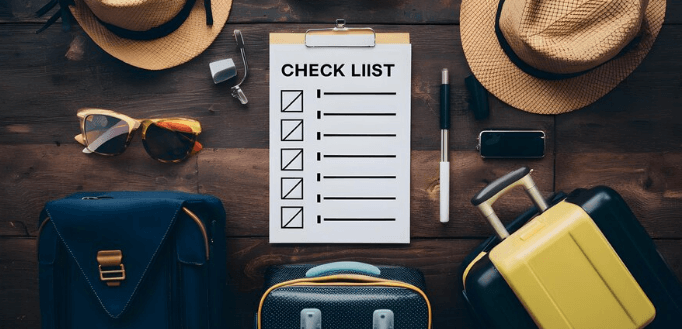

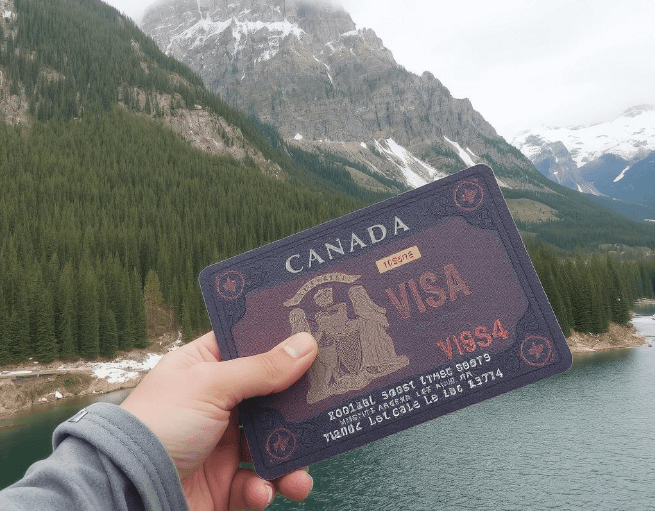
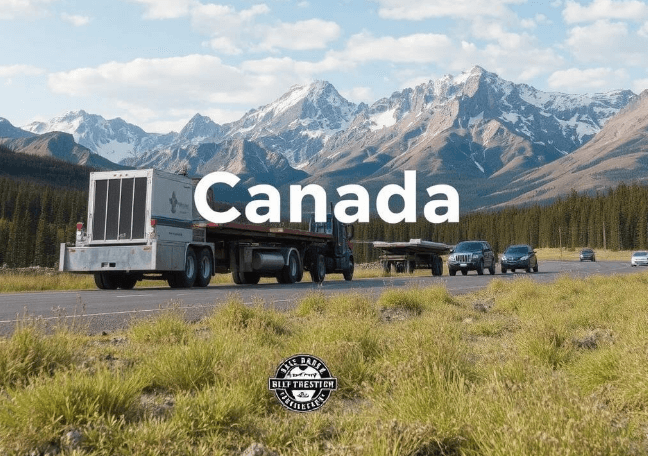

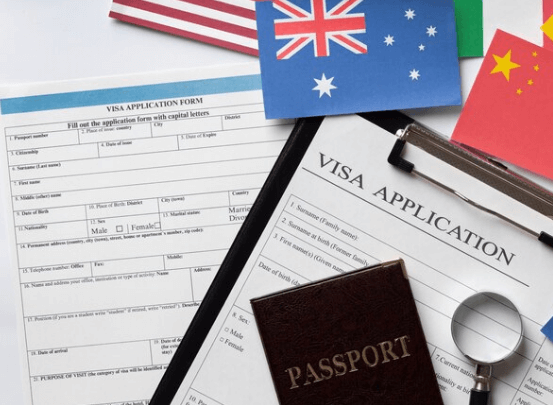
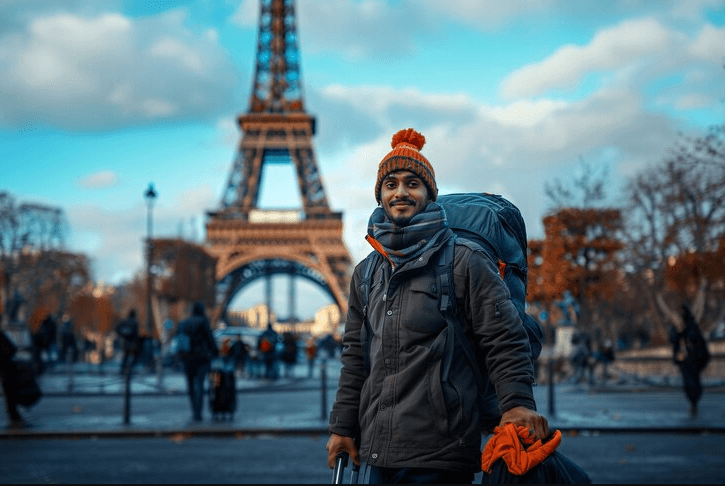
Leave a Reply